CURVED LINES
Obesity, Body Positivity and the Dark Side
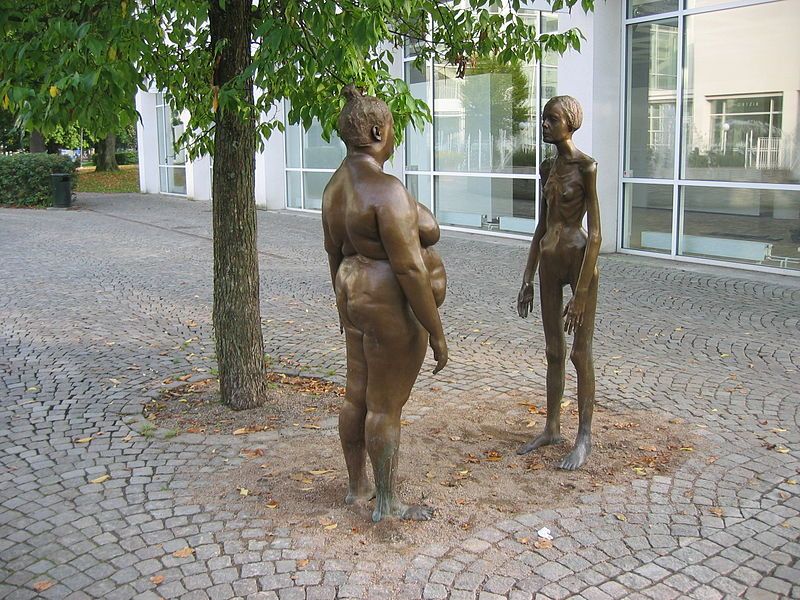
“It's not the picture and the aesthetic in itself, it's the principle” - what happens when hate runs its mouth on body-discussing social media personalities? You get an ideological tug of war.
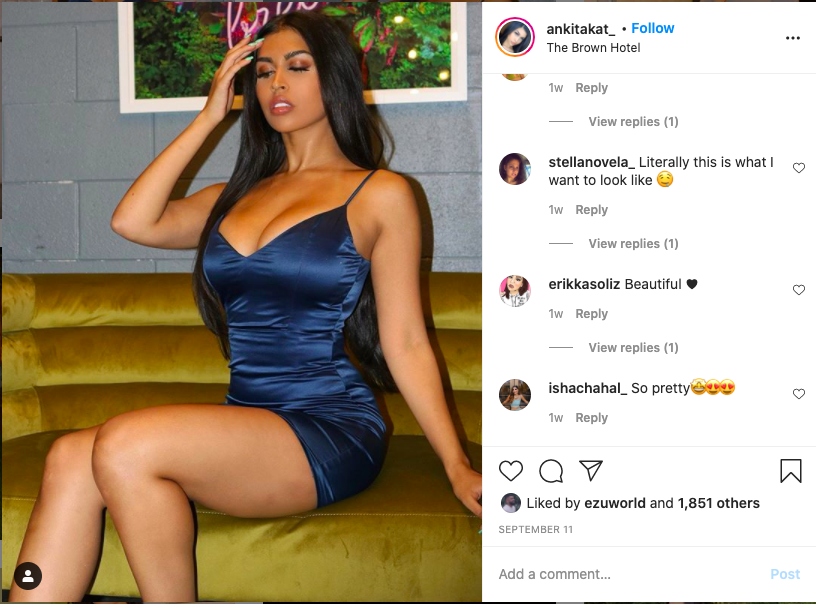
Instagram @ankitakat_
Instagram @ankitakat_
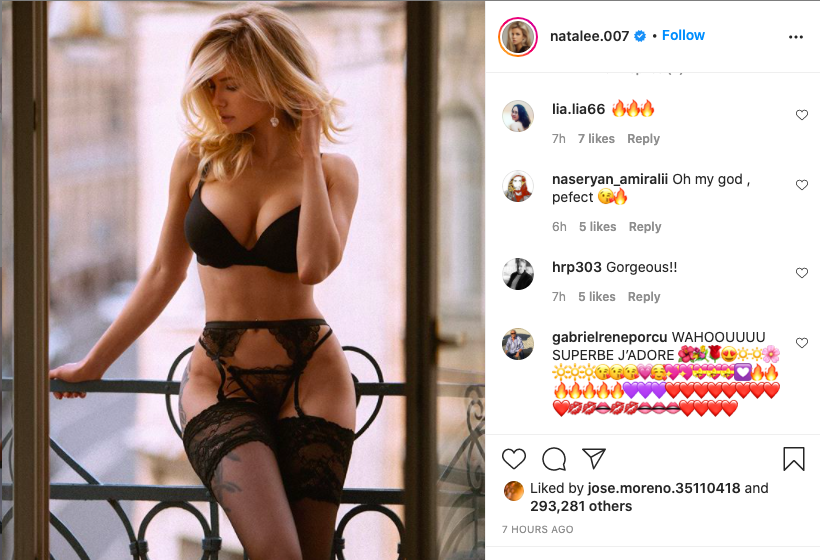
Instagram @natalee.007
Instagram @natalee.007
Influencers, personalities, models. We seldom go even half an hour without checking our smartphones for a negging notification, or we stay up into the wee hours of night scrolling through social media. We froth over perfect bodies and their words of inspiration and empowerment.
But what about those so-called 'imperfect bodies'? Where do their words of inspiration and empowerment come from?
The Chubachubs started their Instagram account with this conundrum in mind. Harmony Debono and Cara Gooding met at the Queensland Conservatorium of Music where they studied their Bachelor of Music together. Harmony is a performer, singer, creator, and musician, heading many creative projects and training in various arts in readiness for a burlesque career. Cara is completing her Masters to be a high school music teacher but has her fair share of performing on the agenda too.
They are not size 0s. They don’t beat around the bush. They started this account to make a safe space for anyone needing it, no matter who they are. Let them explain:
Harmony: I've gotten the most scrutiny [of my body] in real life rather than online. I mean online, you kind of take it with a pinch of salt when you're a performer because you get judged on the way you dress, the way you look. And then it's just like, how you look on stage, how you walk, how you present yourself.
Cara: I’ve been told, “why are you showing your arms? Only a small person can", and I just grew up knowing that - that's all I was taught. For the Chubachubs, like our goal is to give a voice to women who feel uncomfortable to express their confidence, that they basically like locked up over the years.
Harmony: It's also to normalize diverse bodies in mainstream media.
And yes, Chubachubs sounds like the iconic lollipop.
With the pandemic wreaking havoc in every aspect of our lives, there is no doubt that people have added "don’t gain weight" to their list of things they need to control during the lockdown.
Between working from home and endless access to snacks at home, the "Quarantine 15" phenomenon and articles that talked about how not to put on those 15 pounds went viral.
But it is during these very times we need to remember to be kind to ourselves - not aggressively positive, not excessively negative, but kind and warm.
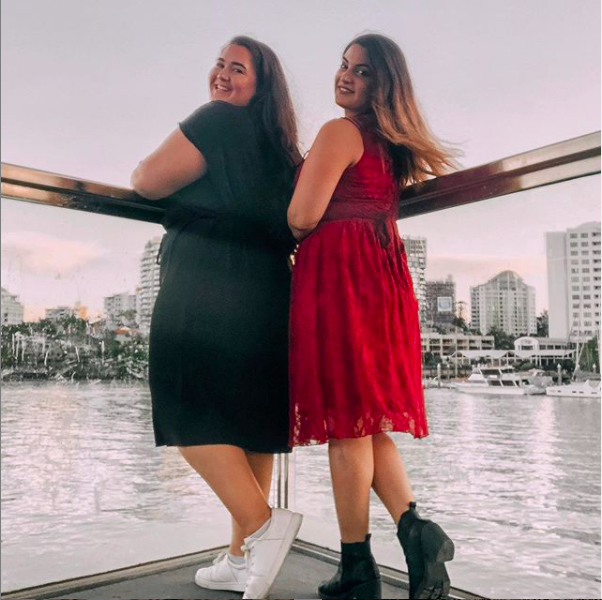
Instagram @thechubachubs
Instagram @thechubachubs
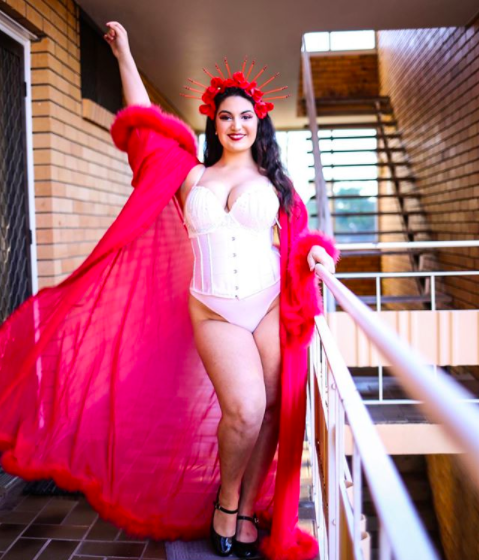
Harmony Debono on Instagram (@itismysticmuse)
Harmony Debono on Instagram (@itismysticmuse)
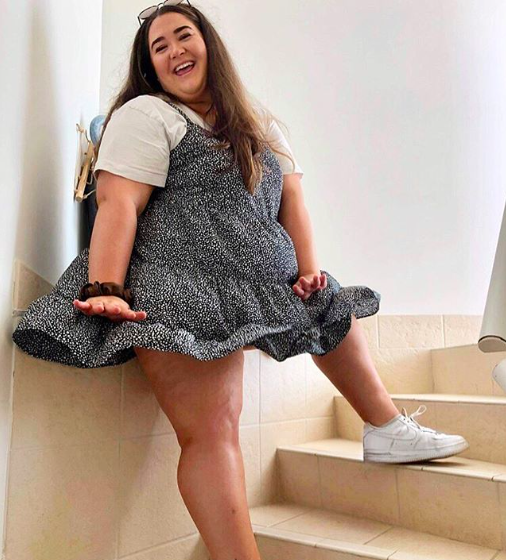
Cara Gooding on Instagram (@cara_elyssa)
Cara Gooding on Instagram (@cara_elyssa)

Instagram @thechubachubs
Instagram @thechubachubs
Harmony and Cara (@thechubachubs)
Harmony and Cara (@thechubachubs)
This is where the #bodypositivity movement comes in. There is no single definition of this term, yet the tag has over thirteen million hits, and counting, on Instagram.
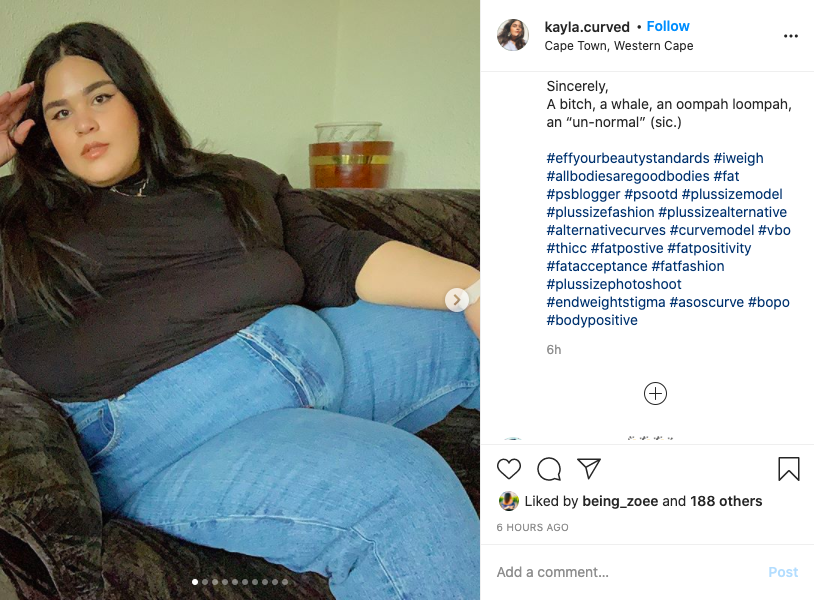
Instagram @kayla.curved
Instagram @kayla.curved
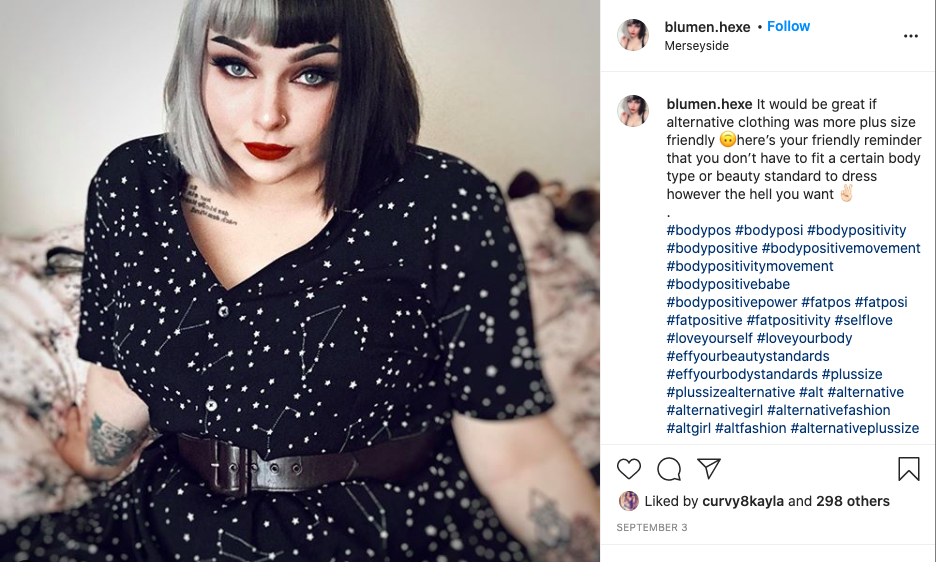
Instagram @blumen.hexe
Instagram @blumen.hexe
Dr Priya Sumithran, an endocrinologist with the University of Melbourne says “I wouldn't want anybody to not feel positive about themselves, even if they were overweight. So you can be positive about yourself and positive about your body. And, you know, there are some people who feel positive about themselves, positive about their bodies and not want to lose weight. And there are people that would feel positive about themselves but still want to lose weight, and that's either is OK.”
Since the paint will seemingly never dry on one true meaning of body positivity, the term can be either consoling or triggering. Some feel promoting body positivity is telling people to stay a bigger size and that it is essentially promoting illnesses such as diabetes or heart disease. But does increased weight always carry increased risks?
Which begs the question; can you be overweight, or obese, and be healthy?
“It's definitely possible for somebody to be overweight or have obesity and be healthy, and it's definitely possible for somebody to be following a healthy diet and to be exercising regularly and to still have obesity or be overweight. On a population level, obesity carries an increased risk of things like diabetes and heart disease, high blood pressure and other sorts of health risks. But that doesn't mean that everybody at a certain BMI level is going to be at risk of those diseases or having those diseases. And similarly, it doesn't mean that everybody who is in the so-called healthy weight range is going to be healthy. Some people, even at a normal weight, develop diabetes, high blood pressure and those metabolic diseases,” says Dr Sumithran.
Cara and Harmony from the Chubachubs agree.
Harmony and Cara (@thechubachubs)
Harmony and Cara (@thechubachubs)
WHAT IS OBESITY?
Before we look at all the hate being shown against plus-sized women on the internet, we need to understand what obesity is -whether you can become overweight or obese by simply eating unhealthily, and most importantly to what extent are people ignorant about the science behind weight gain.
Could this be a reason behind the unsolicited weight-loss advice we read daily on social media?
Dr Joseph Proietto is an endocrinologist specialising in diabetes and obesity at Austin Health and an Honorary Professor at the University of Melbourne’s Department of Medicine.
He explained what is meant by being clinically overweight or obese, and why though people who are obese may be physically healthy, it’s not the end of the story.
Dr Joseph Proietto
Dr Joseph Proietto
The 2007 National Survey of Mental Health and Wellbeing found that among adults aged 16 - 85, “almost half (45%) of the population in this age range will experience a mental disorder at some time in their life (about 8.7 million people based on the estimated 2017 population). It also estimated that 1 in 5 (20%) of the population had experienced a common mental disorder in the previous 12 months (about 3.9 million people based on the estimated 2017 population). Of these, Anxiety disorders (such as social phobia) were the most prevalent, afflicting 1 in 7 (14.4%) of the population, followed by Affective disorders (such as depression) (6.2%), and Substance use disorders (such as alcohol dependence) (5.1%).”
Mental health problems are especially rife among people with obesity or overweight. “Nobody wants to have obesity because it impacts on how well you feel. I've seen a lot of patients that do have mental issues, either personality issues, depression is common. In our clinic, at the Austin, some 20 per cent of the population are on antidepressants. And this underestimates the percentage that have depression,” says Dr Proietto.
We have all seen comments on plus-size women’s social media posts urging them to ‘stop being lazy’ or ‘start eating healthily’ or ‘go to the gym’. But things are not as simple as that. Both Dr Sumithran and Dr Proietto said that there are a lot of misconceptions and misunderstandings when it comes to weight gain and obesity.
Here is Dr Proietto in conversation with Sayee on this issue.
Dr Joseph Proietto
Dr Joseph Proietto
According to Dr Sumithran, the biggest misconception she has seen is the idea that everybody who is overweight is following an unhealthy lifestyle.
She says it's, "absolutely possible to eat well, exercise regularly and still be overweight. So not everybody who's overweight is eating junk food and that kind of stuff so that that's a big misconception. Not everybody who is overweight does that. Not everybody who is normal weight, so-called healthy weight follows a healthy lifestyle. The second big misconception is that the simple solution to losing weight and keeping it off is just to eat less and exercise more. And miraculously, that will fix the problem and it's definitely not as simple as that.”
That there are other underlying and uncontrollable factors that may give a person propensity to obesity is not common knowledge.
Dr Joseph Proietto
Dr Joseph Proietto
I have an analogy which allows you to understand the relationship. If you take two pots, one is a five-litre pot, the other is a 50-litre pot. And you leave them out and it rains heavily overnight, very heavily. And when you come back the next morning, you find that both pots are full. And you ask the question, is this pot holding 50 litres of water because it rained last night? That's the equivalent question of asking, is this person obese because of the environment? And the answer is yes. Of course, on a superficial level, the answer is yes. This pot is holding 50 litres because it rained last night. But no, it's holding 50 litres because it was made a 50-litre pot.
Obesity and being overweight are not equivalent, but both have been talked about more during the lockdown. And according to the WHO, worldwide obesity has nearly tripled since 1975. If it is such a recent phenomenon, how can we blame genes, which normally take more than a few generations to mutate, and not the environment people are in?
Dr Joseph Proietto
Dr Joseph Proietto
Although unfamiliar with Instagram and the whole body positivity movement, Dr Proietto says these movements exist because “people have tried and regained, tried and regained, tried and regained, the so-called yo-yo dieting that they eventually get sick of it. They just feel frustrated and they’re just going to stay as they are. If they don't have major health issues, then from that point of view, for those people who don't have major health issues, if it leads to people accepting them as they are, that's a good thing. It's not a good thing if you just say there's nothing wrong with obesity because obesity does cause a lot of diseases.”
Unfortunately, like with anything on the internet, there is a vast disparity on the philosophy and meaning of #bodypositivity and related topics. Body positivity has some questionable posts including ones that call out larger people for being gross, obese, and offensive.
FACING THE HATE
Being a bigger or smaller size is not only influenced by one’s diet. Assuming so is reductive and disrespectful - plus-sized people are not one hamburger away from the grave. Yet, countless haters and trolls make comments and judgements in this vein.
To these mindsets, Dr Sumithran says “They are simplistic. It's very judgmental and it doesn't cover the whole story. It doesn't take into account the biology of how our body manages its weight.”
We have all witnessed the hate that can exist online. Many have experienced it. Plus-sized influencers like
Anna O’Brien, who goes by the handle Glitterandlazers on Instagram, has had to apologise to angry “fans” for losing weight even though she was taking steps to improve her health.
The Chubachubs however, have a more apathetic attitude to hate.
Harmony and Cara (@thechubachubs)
Harmony and Cara (@thechubachubs)
There is something to be said about character-building though. No, abuse and hate online should not be part of the job, nor is it constructive. Cara and Harmony are prime examples, however, of how one can emerge stronger from it. Second-guessing one’s worth for too long can immobilise you, and they’ve learnt to let go of their perfectionism and fear of not pleasing everyone.
Cara: It's like, who cares, let's just post it. In our recent post, in the back of my head again I was like, oh man, my double chin is really really, really showing but like calm, just like they just post it and just jumping in and being like just post it really helped my confidence.
Harmony: Because it's not the picture and the aesthetic of itself, it's the principle. That photo was at my home graduation because COVID but it was an amazing time because it's like we're celebrating a milestone. It's not "oh my god. This is what we look like". It's like "this is a milestone, have fun!" I mean, if there is straight-out hate, and it doesn't serve any purpose then I won't hesitate to delete that kind of thing. Because it just doesn't need to be there. But if there's someone going "actually how about you see it through this perspective", and it's like, "actually, cool. Like, I'll never fully understand it, but I can acknowledge it". And I can go oh okay, this is a different way of thinking.
Over in London, Shareefa Radford has years of modelling, social media, and beauty industry experience. Co-founder for @shine4diversity and mental health advocate, Shareefa knows there’s more to this landscape than meets the eye.
THE DARK SIDE
As you continue to scroll and scroll, money is being made. Instagram posts are a business avenue for content creators, personalities, and models. Since money is at stake, can plus-sized influencers feel pressured to live a certain way to maintain their income? If so, it could be detrimental to their mental or physical health.
Have a listen to Shareefa explaining the troubled behind-the-scenes that can be veiled by aesthetic visuals.
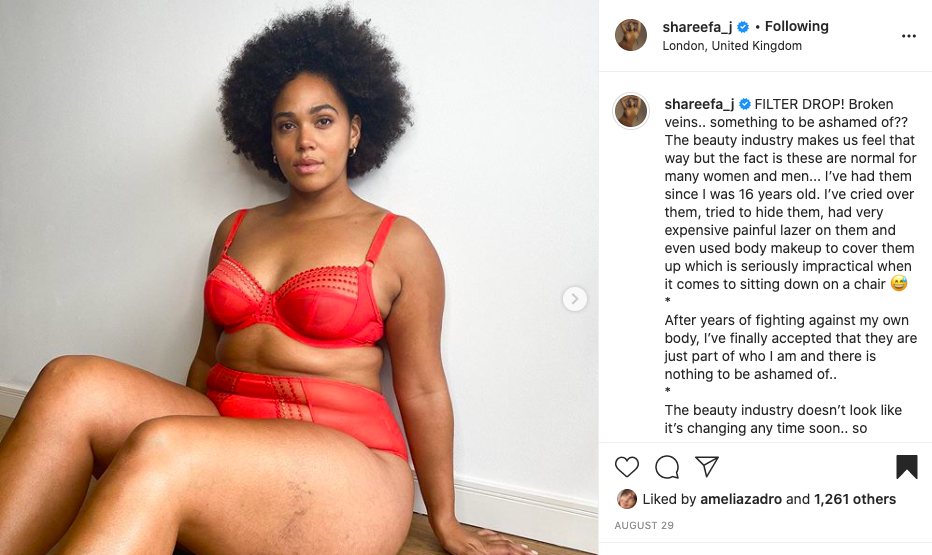
Shareefa Radford on Instagram (@shareefa_j)
Shareefa Radford on Instagram (@shareefa_j)
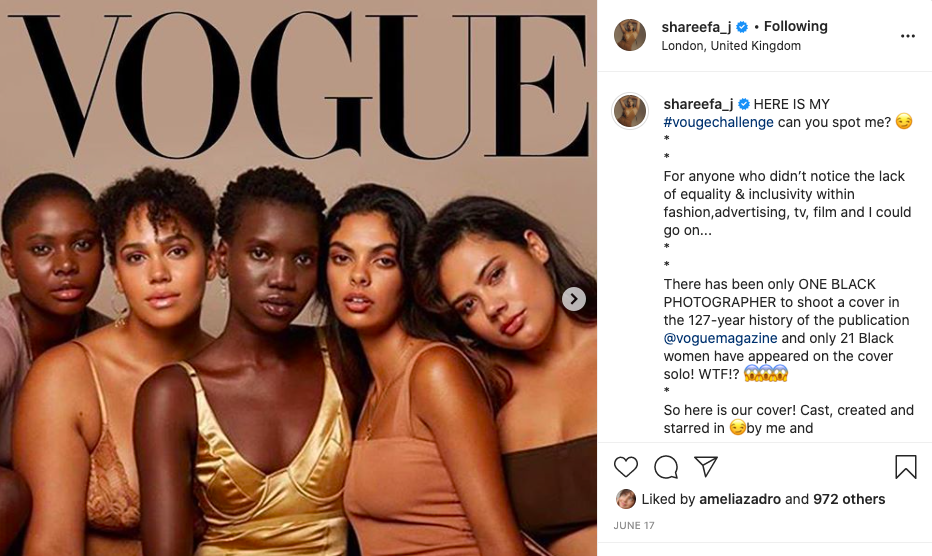
Shareefa Radford on Instagram (@shareefa_j)
Shareefa Radford on Instagram (@shareefa_j)
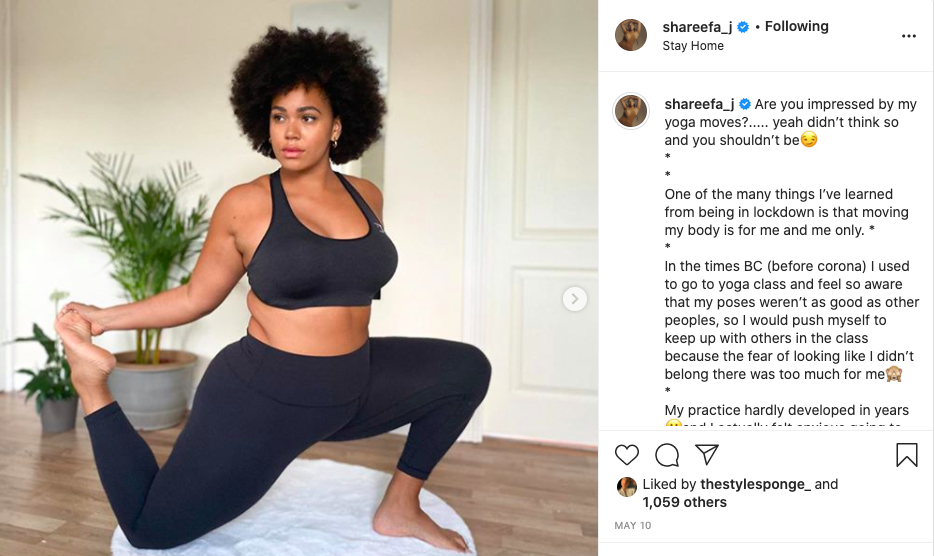
Shareefa Radford on Instagram (@shareefa_j)
Shareefa Radford on Instagram (@shareefa_j)
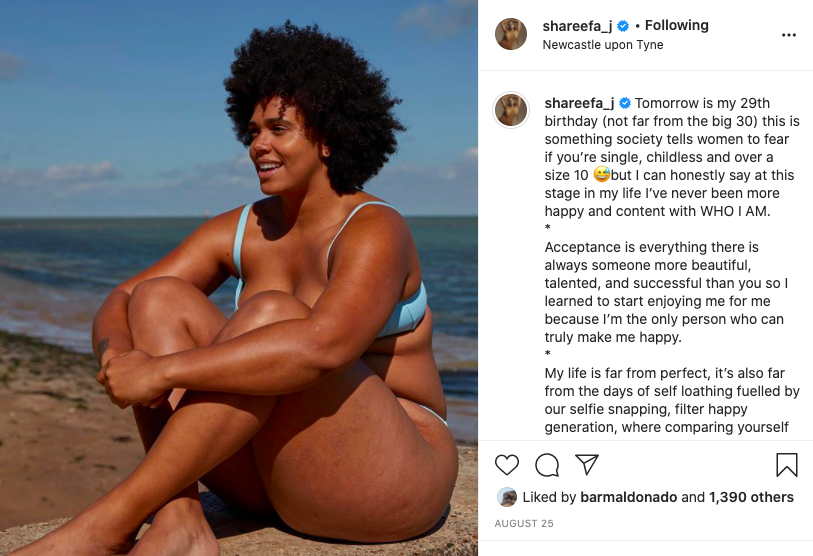
Shareefa Radford on Instagram (@shareefa_j)
Shareefa Radford on Instagram (@shareefa_j)
On social media, more followers equals more income. In the business of social media, where your following has been built entirely on how you look, there would be pressure to maintain that body.
If you've built a livelihood based on being plus-sized, would weight change - for personal or medical reasons - be financially dangerous for you?
Cookie-cutter standards of beauty - as Shareefa dubs, “prehistoric” - are gradually being dismantled, but the path is paved with potholes and road spikes. If all goes well, Shareefa has a dream of everyone being represented when you turn on your TV, when you turn the page in your catalogue. Sadly, this is hard, near impossible, to achieve.
The Chubachubs are on the same wavelength. Harmony says “we're all human at the end of the day, so we may as well help each other out. Have some representation for all of us,” and Cara, “we're not glorifying any size, or glorifying eating really bad foods or good foods at all. We're just deconstructing the normalization of what people think at the moment.”
At the end of the day, social media influencers are still human. And no one likes to deal with hate every single day. But sometimes you got to do what you got to do.
Shareefa says "It is a big old world out there, and there are millions and billions of people. And some of them are not going to like everything you do. But I think when you when you're on Instagram, and you do it professionally like we do, you realize that as much as this is an element of who we are, it is also a job. Now we do also get paid for, for this work. So in the same way that you would put up with stuff that you don't like in your job, I think you put up with this in the same kind of way.”
Body positivity can be empowering.
Body positivity can be damaging.
Some think body positivity teaches people to love themselves others think it encourages people to be obese or overweight and stay that way.
Whatever this movement may mean for different individuals, in a world where we are putting ourselves and our bodies out there more and more, hate for certain bodies becomes apparent.
In this case, ignorance is not bliss.
Education around the science of weight gain and most importantly, basic human compassion is what we need to fight the dark side of body positivity.
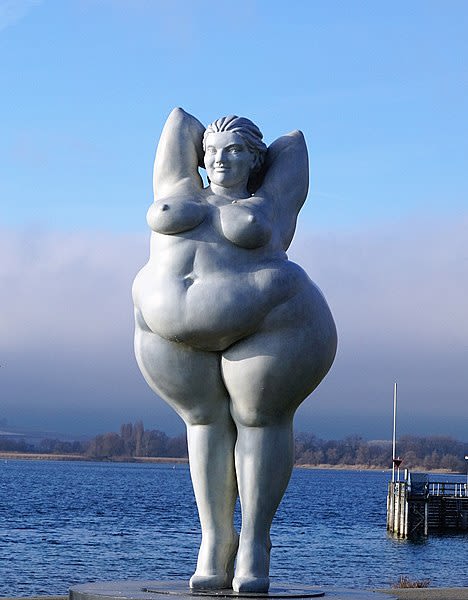
This photograph shows Yolanda, an epoxy resin statue created by Miriam Lenk. The artist says that Yolanda is an "icon for female self-confidence... Yolanda occupies the available space and does not care about any objections."
This photograph shows Yolanda, an epoxy resin statue created by Miriam Lenk. The artist says that Yolanda is an "icon for female self-confidence... Yolanda occupies the available space and does not care about any objections."
